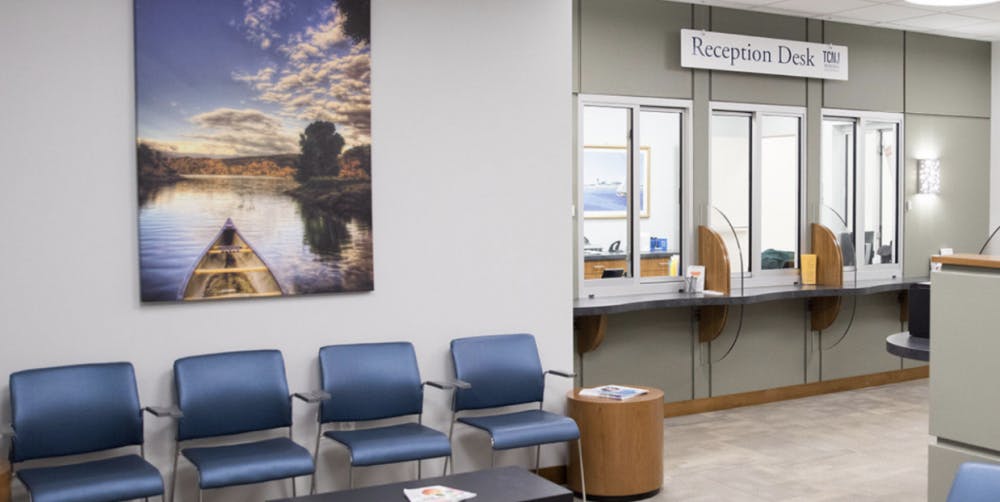By Julia Duggan and Jordyn Sava
Staff Writers
As the result of an online semester, Mental Health Services (MHS) at the College has adapted to supporting students remotely. The College reiterates their commitment to protecting the health and safety of its students, including their mental health. New programs are being offered to students, including racial trauma and coping with Covid-19 support groups, despite the services continuing to remain fully remote.
“We want to remind our campus community that MHS services are available for all registered students,” said Dr. Hue-Sun Ahn, the assistant director of MHS and a licensed psychologist. “Currently, all of our services are offered virtually through teletherapy (via video session or phone) due to the pandemic.”
Access to all services through MHS remains the same as an in-person semester. To get assistance from MHS, students can fill out a “request for service” on OWL, the College’s Online Wellness link.
After filling out a request, students will be given an initial consultation, where one of the 10 or more therapists will create a plan to meet all needs. Ahn said that the center uses a short-term model of therapy and offers assistance to students who need something more specialized or long-term.
These services are staffed by licensed mental health professionals and interns, who have degrees in psychology or counseling and are continuing training. The professionals’ goals are to provide as much support and help as possible. No record of counseling is found in a student’s permanent academic records.

This summer, the Racial Trauma Support Group and Coping with the Pandemic Group were created. Here, students can discuss the events of the world around them and gain support from their peers.
After the success of these groups during the summer, Dr. Ahn says similar groups will begin later this fall semester, and even more in the spring.
“We are also planning a new support group for next spring semester for students who may be in isolation after a Covid diagnosis or recent close contact exposure with someone diagnosed with Covid,” Ahn said.
MHS services are offering a new program this semester called “Let’s Talk,” which is an informal and non-clinical consultation with a mental health professional.
“We see students with a variety of concerns, ranging from relationship or friendship issues, adjustment issues, family concerns, loneliness, lack of self-confidence, procrastination, sexual orientation or gender identity concerns, grief and racial (or) cultural issues, just to name a few,” Ahn said.
There’s a growing need for mental health services nationwide due to the pandemic. But at the College, Ahn reports a decline in student demand.
“We have had a consistent increase in demand for mental health services at TCNJ for the past several years,” Ahn said. “However, we've experienced a decrease in requests for services recently since the College moved to a remote format in March.”
The trend is still continuing into the fall 2020 semester. Many other colleges and universities have also been reporting similar patterns across the country, Ahn said.
“We do not have actual formal data to know for sure the reasons for the decrease at MHS. We can speculate on some of the possible reasons for the decrease, based on what some students have shared with us,” Ahn said.
Students could be seeking mental health services closer to home. Another issue could be the lack of privacy at home and another reason could be the students are unaware the services are available online, Ahn said.
Although there is an overall decline in the demand for MHS at the College, students have expressed that they still are making improvements in regards to their mental health.
“It (mental health) is better and worse,” said Danielle Hecht, a junior music and communications double major. “It is better in the sense of it is a lot more flexible, because it is online and it is much easier for my therapist and I to meet. Also being deprived of the in-person action, it is more of a detriment to my therapist than myself because then, my therapist can’t necessarily see my entire body language.”
Adapting to teletherapy and a remote semester, MHS has experienced benefits and drawbacks. Assistant Director of MHS, Margarita Leahy, says research has shown that teletherapy still works, and clients still make progress. Teletherapy keeps the client safe from contracting any illnesses, and clients who may have had limited access to certain services because of location and transportation are now better able to access these services remotely.
“It may be difficult for a clinician to assess a client’s safety, technology might stop working or lag or freeze making it distracting, some modalities that use a special technique might not work well virtually, body language might be hard to read (or) some insurance companies might not cover the cost,” Leahy said. “I think we are still learning more about what works and why it works, as well as what isn’t working.”
While it has been an adjustment for MHS to transition to teletherapy, students are still able to receive the support they need, and MHS hopes to keep supporting them with their mental health through virtual communication.
“Individual staff there are so stellar and fantastic and it helped in so many ways,” Hecht said.







